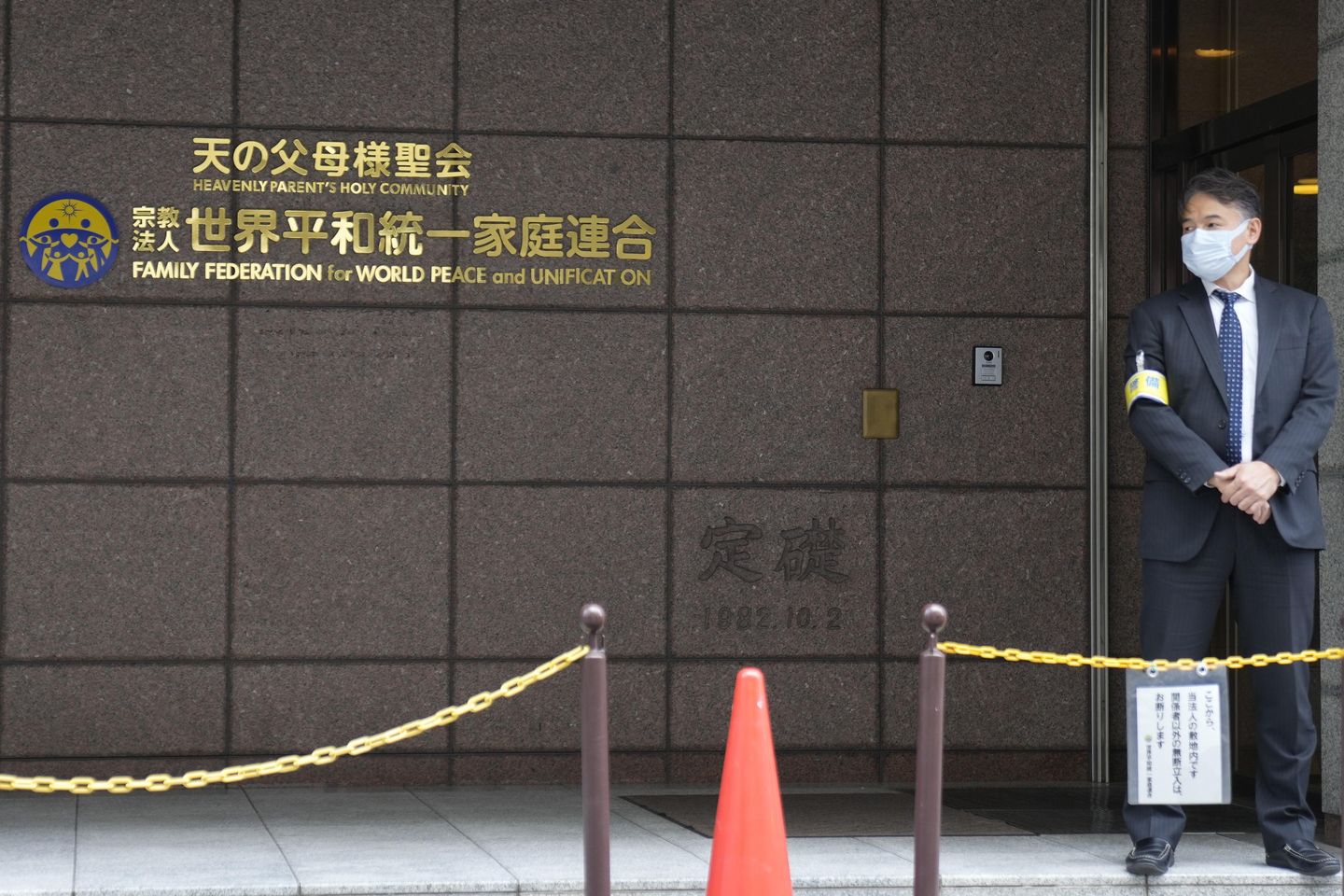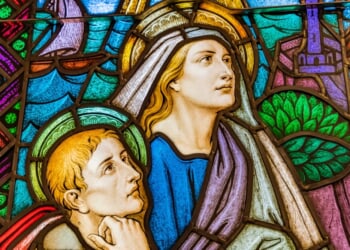
SEOUL, South Korea — More than 300 religious leaders from around the globe descended here Thursday for a five-day conference to promote freedom of religion and universal values across all barriers of faith, culture and geography.
Worshippers today face real threats across Asia, said Tageldin Hamad, president of the Universal Peace Federation, a non-governmental organization with general consultative status with the U.N. and the event’s sponsor.
Members of the Rohingya Muslim minority have been massacred and ethnically cleansed in Myanmar. Significant restrictions on religious freedom exist across China, notably in annexed Tibet.
Just 41 miles north of the site of the 2025 Conference for World Religions lies North Korea, where even the distribution of Bibles is a crime.
“We are not gathered here out of formality, but out of necessity,” said Mr. Hamad, a Sudanese Muslim. “We come together because something sacred is under threat: That is our shared spiritual heritage, and the freedom to live it fully.”
These are in plain sight challenges, but mainstream elements of modern life are also undermining spirituality, say leaders at the gathering.
“Today, civilization stands at a historical and critical crossroad,” said Patriarch George Stallings Jr., an American Christian. “Advances in science and technology, and institutional sophistication, are precisely organizing society, but are increasingly narrowing the space for religion and spirituality.”
Regardless of its antiquity, religion retains value in the modern world, attendees said.
“If laws have provided the framework of society, religion has served as its guiding spirit and moral compass,” Patriarch Stallings said. “Religious freedom is a fundamental value that upholds the dignity and conscience of a person and the cultural identity of a community.”
Attendees agreed on a three-point declaration that was unveiled at the conference’s press briefing.
In Point 1, all present agreed to pray for religious freedom, on the basis that it is “a universal and inalienable right of humanity that must be guaranteed, without exception” and should be upheld in accordance with both national constitutions and international norms.
In Point 2, the leaders agreed to stand in solidarity with one another, regardless of faith, “based on the highest dimensions of truth, conscience and spirituality.”
Point 3 declared a commitment to “safeguard the universal values of truth, love, justice and peace,” on the basis that these values, sourced from religious heritage, “form the ethical foundation of humanity.”
The UPF was founded by Dr. Hak Ja Han and her late husband, Rev. Sun Myung Moon. The couple also established the Family Federation for World Peace and Unification — formerly the Unification Church.
Like the Peace Federation, the Family Federation — which owns The Washington Times newspaper — has consistently pursued religious unity, though as a new religion, it faced considerable bias.
Now, it is facing freedom-of-religion challenges and dissolution in Japan and is under investigation in South Korea.
Officials in Tokyo have accused the Family Federation of exploiting worshippers with “spiritual sales” of expensive icons and coercing followers to make major financial donations. The federation has denied any wrongdoing but has ended solicitation practices that the government criticized.
The U.S. State Department International Religious Freedom Report 2023 stated that Japan “deviated from the norm” when it moved to dissolve the Family Federation, which had not broken any criminal law.
Federation officials say the UPF has been made a political scapegoat and is being targeted by left-wing groups opposed to its anti-communist stance.
In South Korea, representatives of the Family Federation have been drawn into a whirl of allegations surrounding former first lady Kim Keon-hee, wife of impeached former President Yoon Suk Yeol.
Ms. Kim underwent her first hearing Wednesday. Investigators requested her detention Thursday with a warrant that will be decided next week.
She is alleged to have received gifts of luxury jewelry and Chanel products valued at around $50,000 from a former Family Federation official using a shaman as a go-between, all in exchange for political and business favors and an invitation to her husband’s inauguration.
Though Ms. Kim faces more serious charges — interfering in political appointments and manipulating stock prices — the allegations against the Family Federation have strong resonance due to a prior case.
An enduring scandal impacting Mr. Yoon during his term was Ms. Kim’s alleged receipt of a luxury Dior handbag, offered as a bribe by a figure who wanted her husband to improve ties with North Korea.
“Dior-gate” shot to national prominence and Mr. Yoon used his presidential veto to nix opposition probes into Ms. Kim.
Press and public were also incensed by allegations that the first family had relationships with shamans.
Though shamans represent Korea’s oldest spiritual tradition, they face prejudice. Suspicions that they wield undue influence on political and business leaders are persistent and widespread.
These factors all make the case incendiary. Thus far, the investigation has snared one former Family Federation official, who was fired in 2023. It is unclear whether it will engulf its spiritual head, Dr. Hak Ja Han.
Her residence and worship site, in the hills of Gapyeong, northeast of Seoul, were raided on July 18 by a massed force of police and investigators, and she is under a travel ban.
The Family Federation is not the only religious group facing intrusive probes by the new administration of Lee Jae-myun, the South Korean president who took office in June.
Also on July 18, the Full Gospel Church in Yeouido, Seoul, was raided by special prosecutors investigating suspicions that its pastor had connections to figures associated with the alleged cover-up of the accidental death of a Marine in 2023.
Both religious organizations are seeking apologies, and the raids on places of worship were excoriated by the gathered religious leaders on Thursday.
U.S. Bishop Nancy Rosario described the conference as “a clarion call by Rev. Hak Ja Han … to expand the movement for continued global peace without fear or persecution or desecration of our houses of worship.”
Though the UPF conference hammered out key principles, further work is required to ensure action, said Patriarch Stallings — who, like Bishop Rosario, was part of a strong contingent of Black clergy attending the Seoul event.
“We have to come up with an action plan: Talk is not going to cut it!” he said. “You have to put your feet to your faith.”
He called for religious leaders to reinvigorate themselves.
“The religious leadership of our churches is spiritually impotent [if] they cannot bring any kind of challenge to situations where we see religious persecution rearing its ugly head,” he said, suggesting that any movement to promote the declaration’s three points should base itself among grassroots worshippers.





![Gavin Newsom Threatens to 'Punch These Sons of B*thces in the Mouth' [WATCH]](https://www.right2024.com/wp-content/uploads/2025/08/Gavin-Newsom-Threatens-to-Punch-These-Sons-of-Bthces-in-350x250.jpg)
![ICE Arrests Illegal Alien Influencer During Her Livestream in Los Angeles: ‘You Bet We Did’ [WATCH]](https://www.right2024.com/wp-content/uploads/2025/08/ICE-Arrests-Illegal-Alien-Influencer-During-Her-Livestream-in-Los-350x250.jpg)








